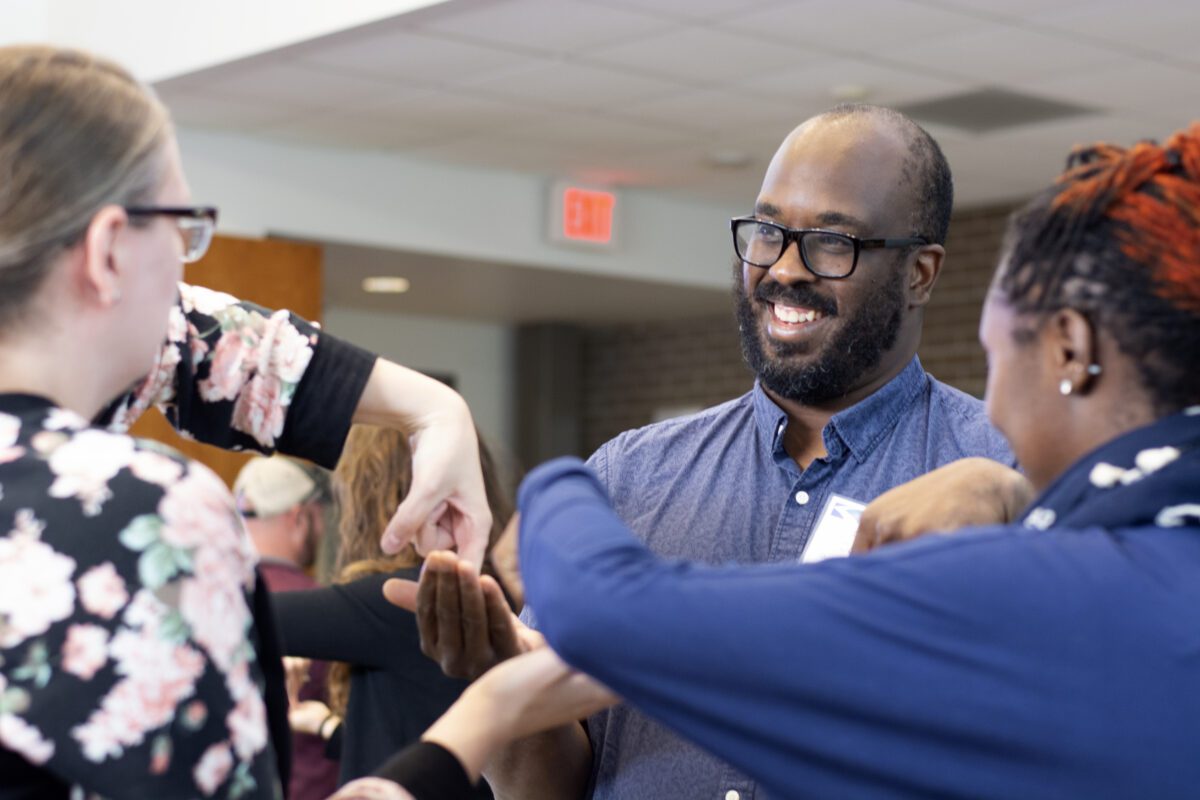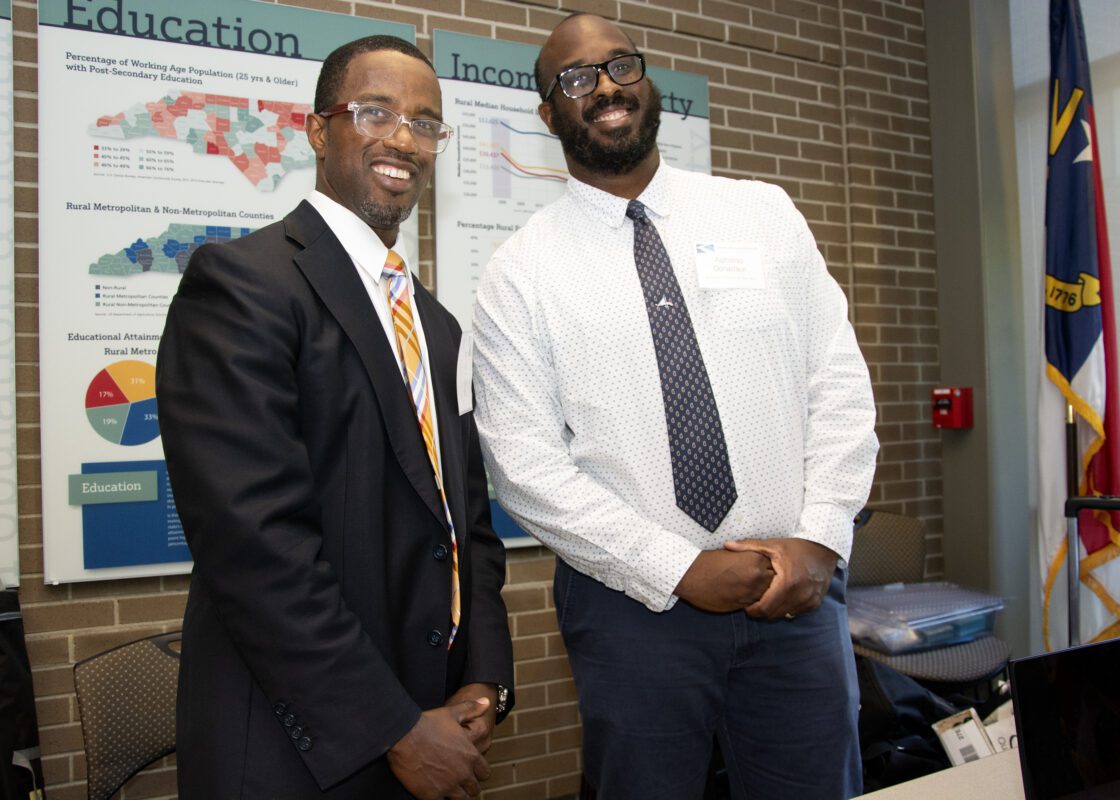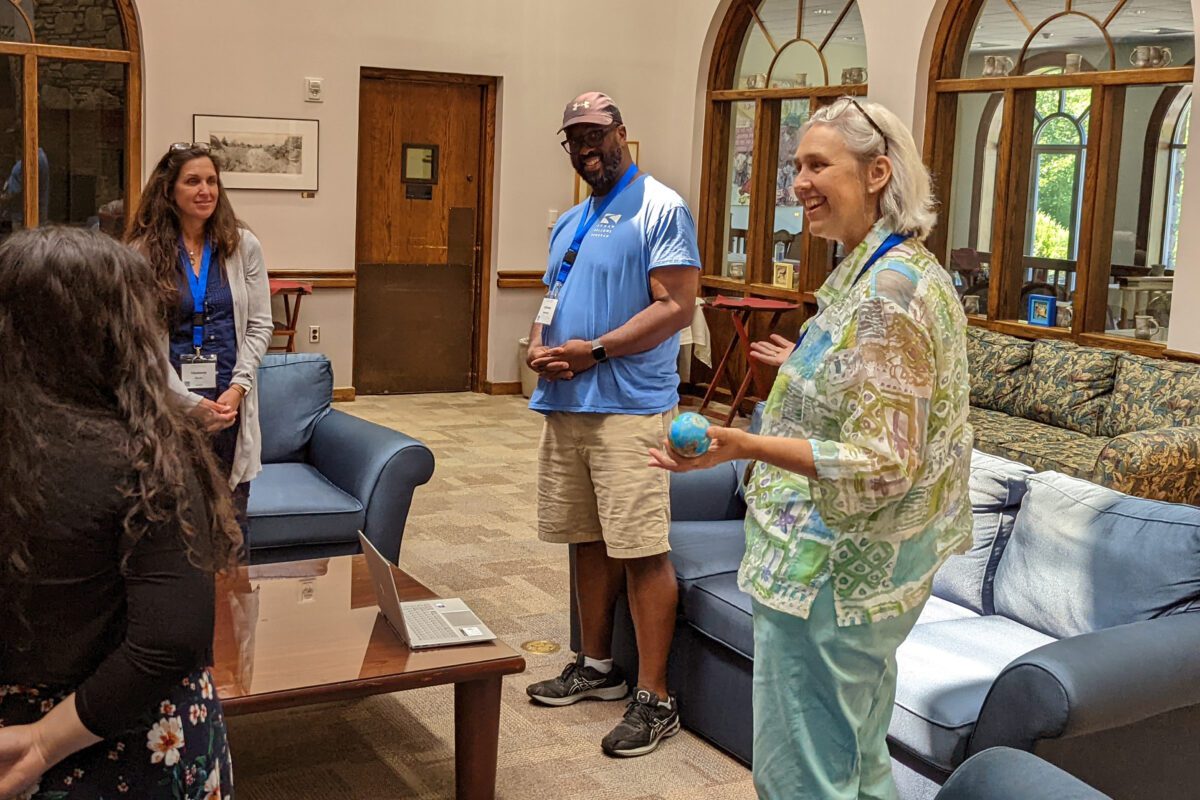Our Alumni Spotlight Series showcases how Kenan Fellows make a difference in their schools, districts and communities.
Alphonso Donaldson, a 2019-20 Kenan Fellow, teaches high school English at the Durham School of the Arts with Durham Public Schools. His fellowship was supported by the Burroughs Wellcome Fund.
Donaldson has been teaching for 24 years and has won numerous accolades, including the 2008 Carrboro High School Teacher of the Year and the 2019 Durham School of the Arts Teacher of the Year awards. He also serves as a member of the Kenan Fellows Program for Teacher Leadership (KFP) Faculty, who are fellowship alumni who plan and deliver professional development for KFP programming.
We spoke with Donaldson about the influence his fellowship has had on his teaching career and the production of “Othello” he is directing with his students at the Durham Schools of Arts. The following are edited excerpts from the interview.
Please briefly tell us what led you to apply for the Kenan Fellowship.
The idea of being in a space where I would get to interact with colleagues from across the state appealed to me, which is why I found the Kenan Fellows Program to be so compelling.



How do you approach planning a stage production with your students?
Well, we are in the classroom, so the stage is not terribly elaborate, but the idea of performing a play together as a class requires me to consider the varied talents and personalities in my class. It is a great way for me to revisit what I know of my students and apply that to roles I think they would play well.
My Professional Learning Community (PLC) team tries to create some excitement through an “audition” where they read a few lines from another Shakespeare play and send their “tape” in. But most importantly, we need to think about balance. Ultimately, the goal is to use our little in-class play to teach a challenging Shakespeare text, so there is a lot to do. I think of the way we structure the play as a process for creating a formative assessment and collaborative learning lab.
What factors do you consider when selecting a play like “Othello” for your students to perform?
There are so many opportunities in a play like “Othello” to examine issues of socio-political conflict, emotional triggers, friendship and manipulation and so much more. We can ground these broader discussions in the context of a rigorous text that requires a variety of decoding skills and a consistent examination of the meaning and purpose of rhetorical devices gives “Othello” such variety and flexibility for our class’ learning experience.
For instance, in the opening scene, the villain, Lago, starts the play by screaming these wildly offensive animal metaphors to another character. In that moment, we get to explore the devices themselves and how they were purposeful for both the character and the author while also exploring the prevalence of racism in the time of the story and beyond.
When is the performance? Is it open to the public?
It is ongoing every class period for the next month or so. Anyone can drop by, but again, it is a teaching performance, so there are lots of stops for discussion, checks for understanding, etc.
Are there specific learning objectives or skills you aim to develop through this production?
Certainly. I think I addressed several of them in previous questions, but I think one of the key skills to reinforce is the process of quick meaning-making for a reader or performer. When my students take the AP exam in May, they will get texts they have to read and generally understand on the spot. Using Othello to practice efficiently understanding the essence of a text will serve students well on the AP exam.
Have you noticed any improvements in students’ reading comprehension or language proficiency because of engaging with dramatic texts?
I think every year we do this we find that students are more comfortable with Shakespeare after the “Othello” unit. The comfort with Shakespeare, I believe, has ripple effects into a greater comfort with other “old” English classics.
How has the network of Kenan Fellows continued to play a role in your professional growth and development since your fellowship year?
I have had the honor of meeting and getting to know new Fellows every year. Their experiences and perspectives are continually helping me grow as an educator and a colleague.

